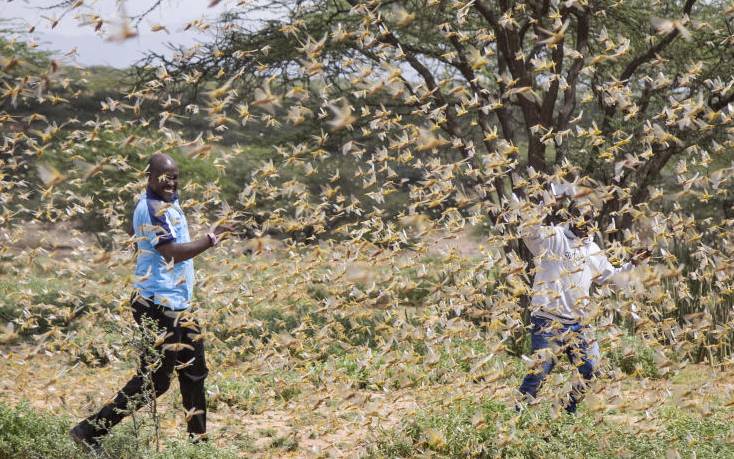
Two Samburu men who work for a county disaster team identifying the location of the locusts are surrounded by a swarm of desert locusts filling the air, near the village of Sissia, in Samburu County, Kenya. The most serious outbreak of desert locusts in 25 years is spreading across East Africa and posing an unprecedented threat to food security in some of the world's most vulnerable countries, authorities say, with unusual climate conditions partly to blame. [Photo: AP]
The Federal Republic of Somalia has declared the Desert Locust invasion a matter of national emergency.